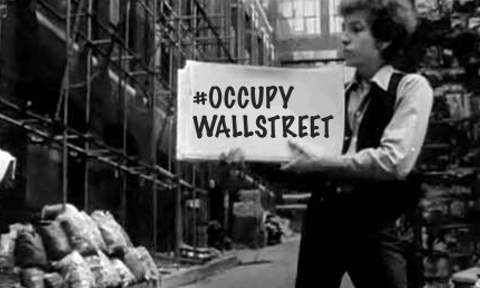http://www.cbc.ca/news/world/story/2011/10/26/f-vp-sheppard-population.html
Crowded planet: Should we care how many billions of us are out there?
World's population has hit 7 billion, but most of us don't seem worried
By Robert Sheppard, CBC News
Posted: Oct 30, 2011 12:23 PM ET

Related LinksINTERACTIVE GRAPH: World population
On Monday, Halloween no less, the world's population will hit seven billion, the UN
For many, it's a scary number, which is perhaps why UN demographers settled on that particular date. A sly joke, as many observers have suggested. The 21st century is not even a dozen years old and already it has produced a billion extra humans.Tomorrow's consumer? Some Indian provinces have the highest birthrate in the world but that is not the political concern it once was.
Currently, four babies are born every second of every day. The human population has almost exactly doubled since 1968 when Paul and Anne Ehrlich's seminal book, The Population Bomb, launched decades of debate and international hand-wringing over family size, contraception and dwindling resources.
Still, we seem to be taking this current milestone mostly in stride. The UN Population Fund has even commissioned a song, as if to commemorate the event.
The world media is, naturally, weighing in, particularly since July when UN demographers first announced the approaching seven billion mark. Many outlets have created entire special sections around the issue, focusing especially on the environmental impacts of population growth.
P.O.V.:Are you concerned about the world's growing population?
But there has been no drumbeat of panic about overpopulation, as it was called in the 1970s and '80s, when the UN hosted regular conferences on reproductive rights and tried to come up with a 20-year plan to keep the number of humans in check.
The last of these, in 1994, concluded after "nine days of sound and fury," the New York Times reported at the time, as developing countries, the Vatican, Muslim nations and the West squared off over birth control and the right of women to make their own decisions about the number of children they would have.
In the end, a compromise was reached on the concept of "fertility regulation," which was designed to slow the pace of population growth. It would have seen the world reach seven billion by around 2015. Oops.
Demographic dividend?
Maybe today's relative lack of concern is to be expected. India and China, the most populous countries, have had direct experience with family planning — forced sterilization clinics, the one-child policy, villages with a surplus of unmarried (and quarrelsome) men — and might be excused for not wanting to continue down that path.
Where the people are
According to the latest UN estimates, India, whose population shot up by 700 million over the last 40 years alone, will overtake China as the world's most populous country shortly after 2020. It will be overtaken itself by sub-Saharan Africa within 20 years of that.
As population expert Joel Cohen has pointed out, in 1950, there were nearly three times as many Europeans as sub-Saharan Africans. By 2100, there will be nearly five sub-Saharan Africans for every European if UN demographers are right.
Meanwhile, in the West, there is a palpable feeling that we've cried wolf too often already (the Ehrlichs, the limits-to-growth debates, the peak-oilers and their adherents).
We have also been bombarded with the message that, because of their low birth rates, Western democracies are running out of young people to keep their economies functioning and, therefore, their hospitals open and pension cheques arriving.
In that regard, India and China, far from being the demographic pariahs of yesterday, are now being seen as the talent pool, the workforce and, most importantly, the consumers of tomorrow.
Plus, as a species, we've kinda made do. Or have we?
Better gardeners
In the 20th century, the world's population increased fourfold, and, miraculously, food production kept pace.
Last year, for example, farmers collectively produced 2.3 billion tonnes of cereal grains, which represent enough calories to feed at least nine billion people, estimates population biologist Joel Cohen, author ofHow Many People Can the Earth Support.
That feat, of course, assumes that these foodstuffs would be equally distributed, which they are clearly not. (The UN estimates that 900 million people go to bed hungry almost every night.)
It is also predicated on the premise that more of what we grow would be diverted from inefficient bio-fuels and feeding animals (and, ultimately, our Big Mac diets) directly to humans, as a team of Canadian and international scientists recently recommended.
In any event, some call this quadrupling of the food supply since the 1960s, the Monsanto revolution — not always in a good way.
In raising crop yields as we did, forests were cut down, diversity was sacrificed and global energy use (much of it for fueling fertilizer factories) went up eightfold.
Another tradeoff has been dead zones of algae in river systems and along certain ocean coastlines caused by the runoff of all these fertilizers, nitrogen and phosphorus in particular.A choice of lettuces, a dinner party by the barbecue or a meal of mashed maize? We can feed ourselves, but how well?
Some UN scientists estimate that only 20 per cent of the world's freshwater is uncontaminated by farm and fertilizer runoff and, more ominously, that by 2025, two-thirds of the world's population will be in countries facing freshwater shortages.
The good news, says David Keith, the Canada research chair on energy and the environment at the University of Calgary, is that we are spending only three per cent of world GDP on agriculture (closer to one per cent in North America) and that this number has been coming down for decades.
That means, he argued in a lecture this summer at the Perimeter Institute in Waterloo, Ont., that we humans would appear to have the economic flexibility, and probably the technology, to give ourselves some breathing room.
But we might have to start thinking about nature in a fundamentally different way, as something to be managed. As Keith puts it, "We are in the gardening business with this planet, whether we like it or not."
The Anthropocene
It is not that no one is thinking about the implications of a crowded planet. The climate change people certainly have been, beginning in the mid-1990s and taking over, perhaps, from the overpopulation crowd.
So, too, oddly enough, are the world's geologists, a group that usually tends to look back in time, often over huge increments of millions of years.
Technically, we are still in the Holocene era, the one that began at the end of the last ice age, some 11,500 years ago. But a group of geologists, inspired by Paul Crutzen, the Nobel prize-winning Dutch chemist, are trying to change this, saying we are really living in the age of man, something Crutzen calls "the Anthropocene."
As a concept, it's a game changer, as CBC Radio's The Current pointed out recently: Just look at what all our building and hewing and paving is doing to the Earth.
An urban planet
Developed countries such as Canada are 80 per cent urban now, and the developing world is catching up quickly.
The 10 biggest urban conglomerations:
City Population
Tokyo 36,669,000
Delhi 22,157,000
Sao Paulo, Brazil 20,262,000
Mumbai 20,041,000
Mexico City 19,460,000
New York-Newark, N.J. 19,425,000
Shanghai 16,575,000
Calcutta 15,552,000
Dhaka, Bangladesh 14,648,000
Karachi, Pakistan 13,125,000
Source: CIA World Factbook
It is a view — humanity as a geophysical force, muscling in on nature's realm — that seems to be gaining traction, though geologists as a group have not yet formally pronounced.
In its now well-quoted take on Crutzen's notion, the Economist magazine noted that there is one Canadian mining company (Syncrude, in the Alberta oilsands) that moves more earth annually than all the river systems in the world combined.
It is a bit of a false comparison, mind you, in that the gradual buildup of almost 50,000 hydroelectric dams on our biggest river systems has dramatically reduced the amount of silt that these rivers carry.
Still, it is hard to ignore the effect of so many of us on the planet. In the last 50 years alone, the oceans have become (30 per cent) more acidic, the atmosphere (four per cent) wetter and the earth's surface warmer (by almost one degree C).
There is also much less flora and fauna than ever before as our need for food and building materials has crowded out other creatures and destroyed their habitats. Plus, we are genetically altering the DNA of plants and fish.
Back in the 1990s, E.O. Wilson, the famous Harvard biologist, calculated that the "human biomass" was already about 100 times greater than that of any other large species that ever roamed the earth, including the dinosaurs.
Then again, he also observed that we humans are actually outweighed by the total biomass of ants, that other industrious, scavenging creature, which doesn't seem to need as much elbow room to get by.









